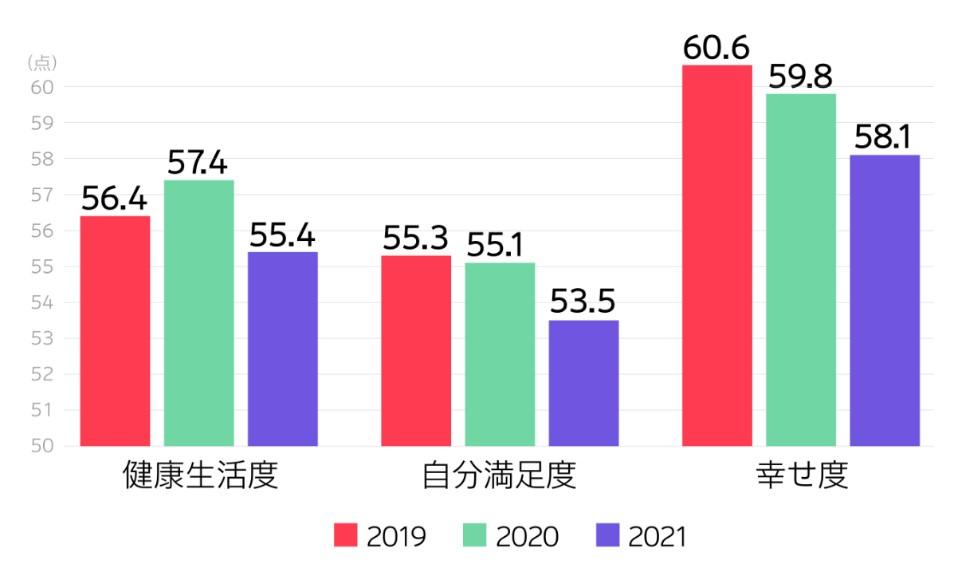Dentsu Conducts “15th Wellness Survey of 10,000 People”
Cluster analysis of consumers' health awareness and behavior and classification into 7 types
Dentsu Inc. (Headquarters: Minato-ku, Tokyo, President: Hiroshi Igarashi), in the healthcare field The Dentsu Healthcare Team, an in-house organization that provides one-stop support from formulating target strategies and business models to development, market launch, and communication measures, targets a total of 10,000 men and women in their 20s to 60s nationwide. 10,000 Wellness Survey” (hereafter, “this survey”) was conducted. Conducted annually since 2007, this survey is a large-scale quantitative survey aimed at gaining insight into healthcare from the health awareness and behavior of consumers and clarifying market needs and trends from the perspective of consumers. I'm here.
In recent years, due to issues such as the declining birthrate, aging population, and soaring social security-related costs, the importance of properly taking care of one's own health has become fully recognized. Past surveys have also revealed the true feelings of consumers who do not want to make efforts or put up with their health even if they understand it, and the reality of consumers who are unable to actively act on health issues other than those in front of them. I'm here.
In addition to investigating changes in health behavior caused by health, the health awareness and behavior of consumers were clustered and classified into 7 types.
The Dentsu healthcare team will continue to conduct this survey, and will utilize the accumulation of consumer insights that are characteristic of the healthcare field, business and product development processes based on unique methods, and a diverse network to We will continue to contribute to supporting the sustainable growth of
② Although more than 60% of respondents answered that they would like to improve their health and lifestyle in the next year, their self-assessment of their health and lifestyle in the most recent year averaged 55.4 points (out of 100 points). stay in.
(3) Monthly expenses for products for health are 1,380 yen. A decrease of 149 yen compared to last year's 1,529 yen. The decrease was particularly large among men in their 20s and 30s. Similarly, spending on health services is also on a downward trend from last year.
Mental stress increased by 3.9 points from last year (25.0%), but more than half of the respondents did not take any measures.
It is believed that
6. More than 40% of women in their 30s and 40s answered, "I have never used it, but would like to use it in the future."
⑦ The ownership rate of smart watches is still low at 15.6%, but 82.1% of owners use them.
(1) Perform cluster analysis on health awareness/behavior and classify consumers into 7 types. The "digital healthcare layer", which actively engages in all kinds of health activities, spends the most on health, and uses smartwatches at an overwhelmingly high rate, accounts for only 11% of the total, which is a small proportion, but it is a major player in the health tech market. It is considered to be an important target to lead.

[Chart 1] Cluster appearance rate
②Although more than 60% of respondents answered that they would like to improve their health and lifestyle in the next year, their average self-score for their health and lifestyle over the past year was 55.4. Stay on point (out of 100).
[Chart 2] Self-rating of "healthy life", "self-satisfaction", and "happiness" (comparison of the last 3 years)
[Chart 3] Intention to improve "healthy life", "self-satisfaction" and "happiness" in 2021
Notes:
■I want to improve: "I am satisfied with my current score, but I want to aim for a higher score", "I am not satisfied with my current score, and I want to aim for a higher score" Total
■ Leave it as is: Total of "I am satisfied with my current score and would like to maintain this score" and "I am not satisfied with my current score, but I am okay with it as it is"
■ It doesn't matter if it gets lower: "I'm satisfied with my current score, and I don't mind if it gets lower", "I'm not satisfied with my current score, but I don't mind if it gets lower." total of no
(3) The average monthly cost for health products is 1,380 yen. Compared to last year, it decreased by 149 yen, and the decrease was particularly large among men in their 20s and 30s. Similarly, spending on health services is also on a downward trend from last year.
[Chart 4] Expenses spent on health products (monthly)
*Supplements, health foods, drinks, etc.
[Chart 5] Expenses spent on health services (monthly)
*Fitness, massage, etc.
(4) Mental stress (28.9%), eye fatigue (25.7%), and gray hair (25.5%) were the most common symptoms that they were currently worried about. Mental stress increased by 3.9 points from last year (25.0%), but more than half of the respondents did not take any measures.
[Chart 7] Proportion of "not taking any measures" for the symptoms you are worried about
(5) Symptoms with high prevention awareness are forgetfulness (13.9%), osteoporosis (12.7%), and visceral fat (11.9%), in that order. No, but I want to be careful in the future.
[Chart 8] Symptoms you don't feel yet but want to be aware of in the future (TOP 5)
(6) The percentage of people who have experienced online medical care, which has attracted attention due to the spread of new coronavirus infection, was low at 4.4%, but 34.4% of people have an intention to use it. expected to expand. More than 40% of women in their 30s and 40s answered, "I have never used it, but would like to use it in the future."
[Chart 9] Online medical consultation rate and intention to use
⑦Although the smartwatch ownership rate is still low at 15.6%, 82.1% of the owners use it.
[Chart 10] Smart watch ownership/usage rate
More than
